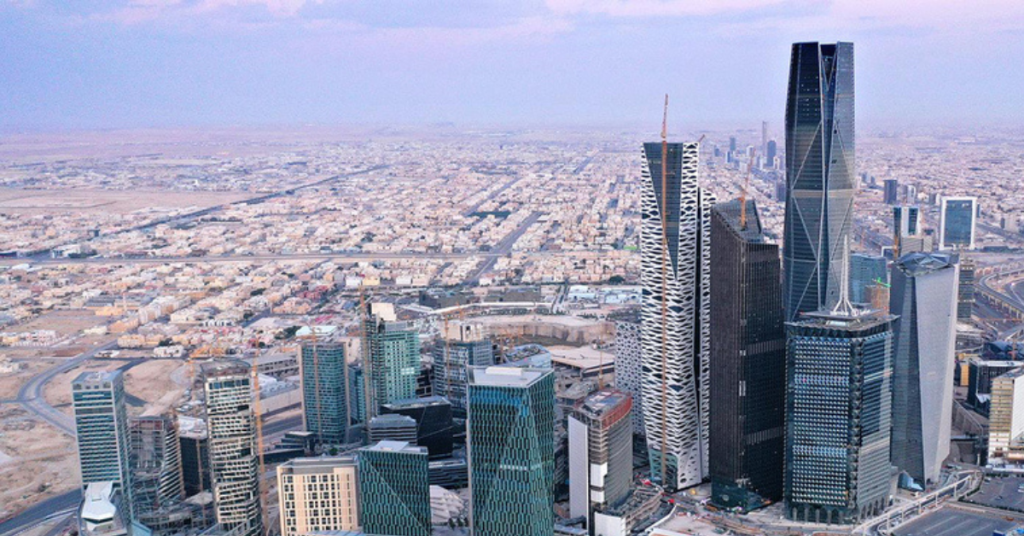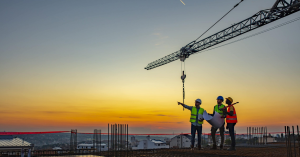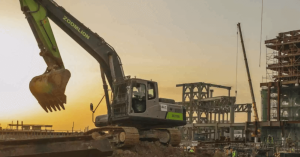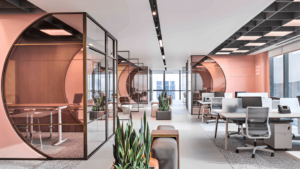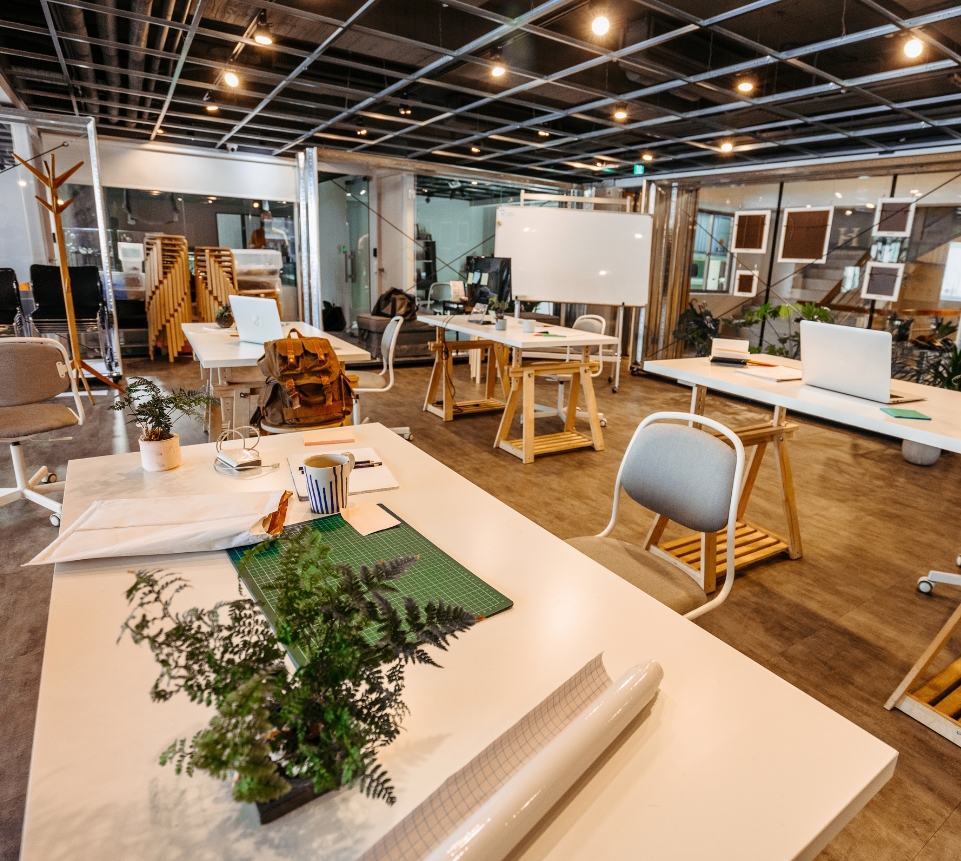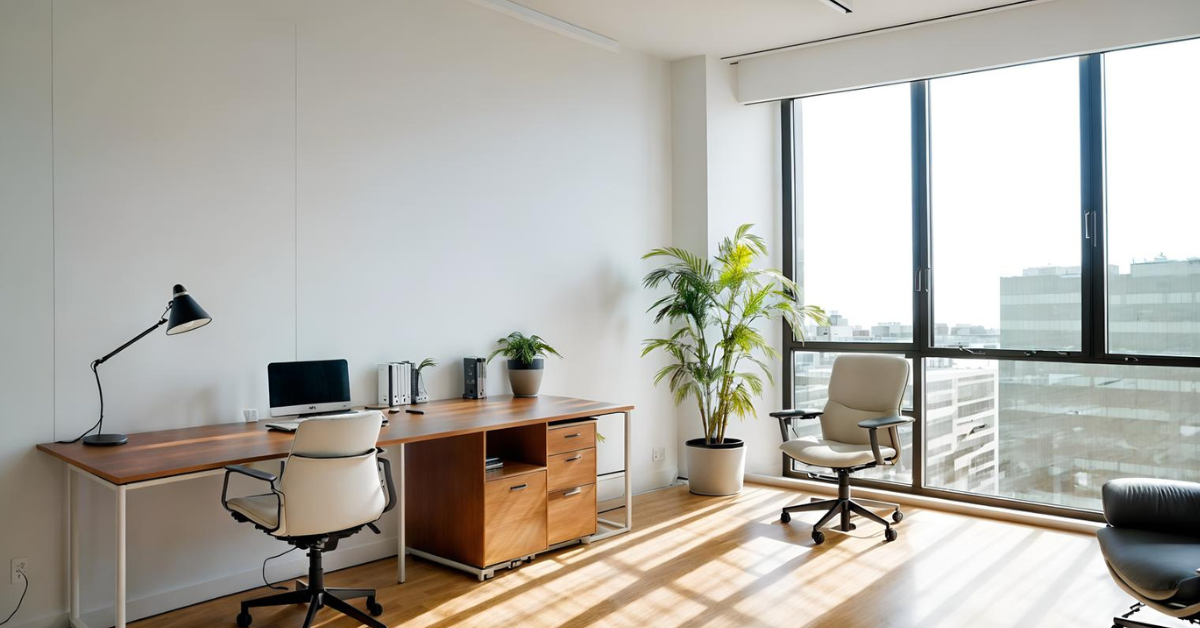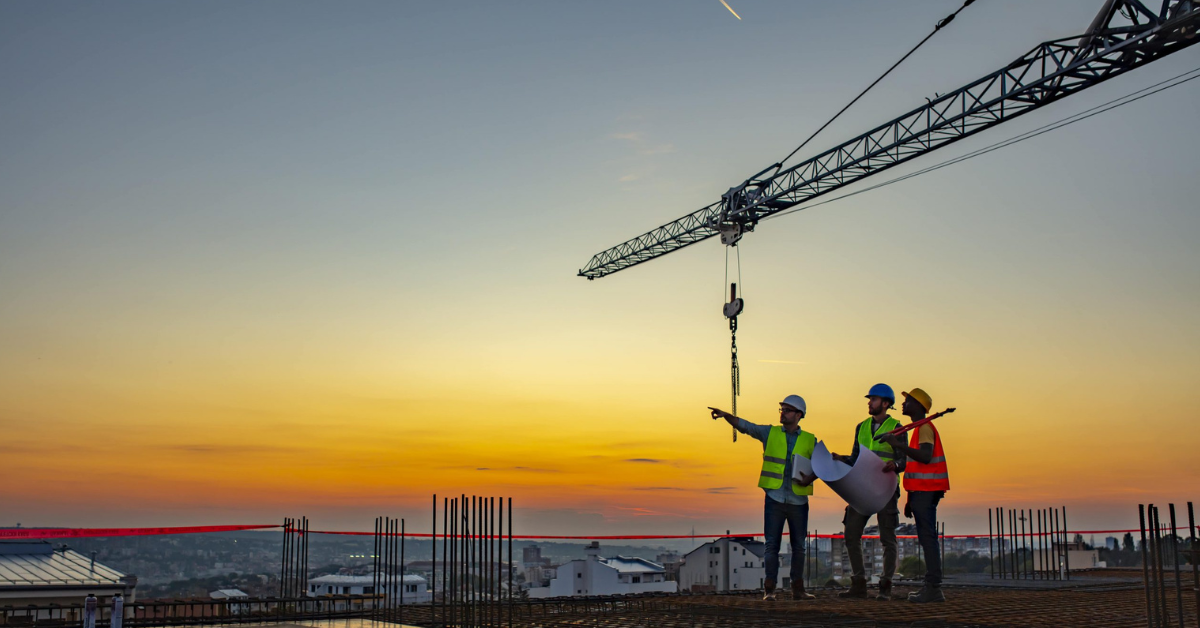Riyadh, the capital of Saudi Arabia, is a fascinating blend of ancient heritage and modern innovation. As a thriving center of commerce, Riyadh is home to a booming construction industry that attracts local and international players. However, setting up and running a construction company here requires navigating a landscape shaped by Saudi Arabia’s regulatory framework and unique cultural nuances. This guide offers a comprehensive look into the essential factors that construction companies should consider when operating in Riyadh. We’ll cover local regulations, office fit-out trends, and take a journey through Riyadh’s rich history and dynamic present.
Local Regulations and Standards for Construction Companies in Riyadh
Launching a construction company in Riyadh is no small feat—it involves strict adherence to local regulations and standards aimed at ensuring safety, quality, and environmental responsibility in the industry. From building codes to environmental guidelines, the construction landscape is governed by rules that ensure high standards across all projects.
Key Regulations Governing Construction in Riyadh
Here’s a look at the primary regulations that construction companies must follow:
- Saudi Building Code (SBC): The SBC provides comprehensive guidelines for all aspects of construction, including materials, design, and safety measures. Companies must adhere to these guidelines to meet both legal and quality standards.
- Environmental Regulations: Riyadh’s arid climate brings unique environmental challenges. Construction companies are required to use environmentally friendly materials, manage waste responsibly, and minimize the ecological impact of their projects.
- Health and Safety Standards: The Saudi Ministry of Labor and Social Development enforces health and safety standards to protect workers, making it mandatory for companies to implement proper safety measures, such as providing protective gear and safety training for all personnel.
Office Furniture Fit-Out Services in Riyadh
For businesses setting up in Riyadh, office furniture fit-out services are essential. Whether it’s a corporate headquarters or a startup hub, companies need fit-out solutions that cater to modern workspace requirements while respecting local cultural expectations.
Key Considerations for Office Fit-Out Projects
An office fit-out project in Riyadh typically involves the following considerations:
- Space Optimization: Maximizing the use of available space is crucial, particularly in high-density office areas. Riyadh’s commercial properties often focus on space efficiency without sacrificing comfort.
- Cultural Alignment: Office designs should respect Saudi cultural values. For example, incorporating prayer rooms and ensuring appropriate separation in workspaces where needed can make offices more culturally accommodating.
- Regulatory Compliance: Like any other part of construction, furniture fit-outs must adhere to local safety standards, ensuring elements like fire resistance and accessibility are up to code.
With Riyadh’s bustling business environment, choosing a knowledgeable fit-out contractor who understands these requirements can make a significant difference in achieving a safe, efficient, and culturally aligned workspace.
A Snapshot of Present-Day Riyadh
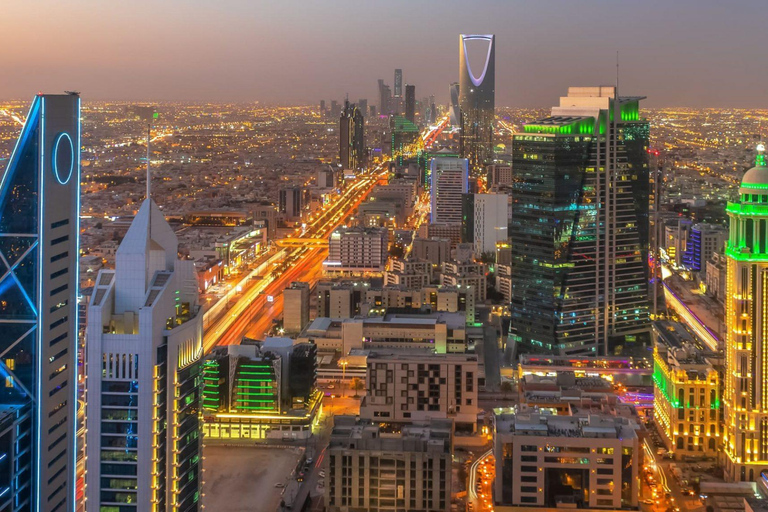
Riyadh today is a city of dynamic contrasts, showcasing both its historic heritage and modern advancements. Landmarks such as the Kingdom Centre and the Al Faisaliah Tower are testaments to the city’s rapid modernization, reflecting Riyadh’s commitment to becoming a global hub.
Key Facts About Modern Riyadh
- Economic Growth Hub: Under the Vision 2030 initiative, Riyadh has seen exponential growth in various sectors, particularly construction, finance, and technology, drawing investors and companies from around the world.
- High Quality of Life: Riyadh offers a wide array of amenities, from luxury shopping malls and five-star hotels to cultural institutions and fine dining options, creating a cosmopolitan environment for residents and visitors alike.
- Green Riyadh Project: One of the city’s most ambitious projects aims to plant millions of trees to enhance Riyadh’s livability and sustainability. The project is part of Saudi Arabia’s broader efforts to combat climate change and improve the urban environment.
Riyadh’s blend of luxury, modern amenities, and future-focused developments make it a top choice for businesses and expats alike.
Historical Perspective on Riyadh
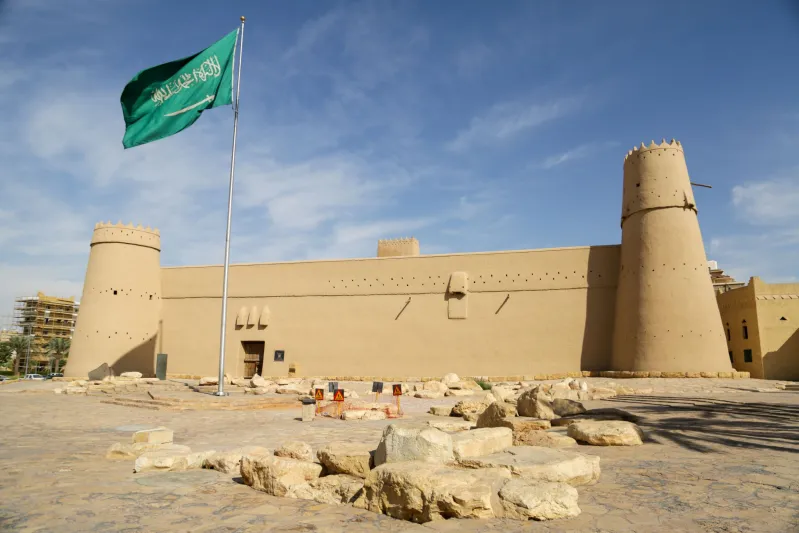
Riyadh has a storied past, beginning as a modest desert settlement before evolving into the dynamic metropolis it is today.
From Modest Beginnings to a Modern Capital
Historically, Riyadh was a small but strategically located settlement. The city’s prominence grew significantly in the 18th century when it became the center of the Saudi state.
Notable Historical Sites:
- Masmak Fortress: A symbol of Riyadh’s rich heritage, this fortress is central to the story of King Abdulaziz’s conquest of Riyadh in 1902, which paved the way for modern Saudi Arabia.
- Diriyah: Once the ancestral home of the Saudi royal family, Diriyah is now a UNESCO World Heritage site. It stands as a historic reminder of Riyadh’s cultural legacy and attracts tourists and locals interested in exploring the roots of Saudi Arabia.
These historical sites highlight Riyadh’s transformation from a small desert settlement to a global metropolis, offering visitors a window into the city’s fascinating past.
Key Steps to Starting a Construction Company in Riyadh
Navigating Licenses and Permits
Starting a construction company in Riyadh requires obtaining specific permits and licenses to ensure compliance with government standards. Key permits include:
- Commercial Registration: Issued by the Ministry of Commerce, this registration allows businesses to operate legally within Saudi Arabia.
- Municipality License: This license, granted by the local municipality, permits construction work within Riyadh.
- Foreign Investment License: For foreign investors, a license from the Saudi Arabian General Investment Authority (SAGIA) is required to operate in the country.
Working with local legal experts can ease the process of obtaining these permits, ensuring that the company is set up efficiently and meets all regulatory requirements.
Leveraging Local Resources for Success
To build a successful construction company in Riyadh, companies often rely on local partnerships to source materials and labor. Collaborating with local suppliers and contractors not only ensures high-quality materials but also helps in understanding and adapting to the region’s construction norms and expectations.
Common Challenges in Riyadh’s Construction Industry
While Riyadh’s construction sector is promising, companies face several challenges:
- Skilled Labor Shortage: Finding qualified local labor can be challenging, leading many companies to rely on imported labor from abroad.
- Environmental Constraints: Riyadh’s desert climate requires companies to adapt building techniques and materials that can withstand high temperatures and occasional sandstorms.
- Bureaucratic Complexities: Despite ongoing efforts to simplify processes, navigating regulations in Saudi Arabia can be complex, particularly for foreign companies.
Growing Opportunities for Construction in Riyadh
The city’s ambitious Vision 2030 project is creating numerous opportunities for the construction sector, including:
- Residential Projects: With Riyadh’s population steadily growing, there’s a rising demand for high-quality, eco-friendly housing.
- Green Building Initiatives: Riyadh is pushing for sustainable construction practices, creating a demand for green buildings and eco-friendly materials.
Ready to Begin Your Construction Journey in Riyadh?
If you’re considering entering Riyadh’s thriving construction industry, connecting with local experts can streamline the process and help you establish a successful business. Reach out today to learn more about navigating Riyadh’s regulations, finding the right partners, and bringing your projects to life in Saudi Arabia’s vibrant capital!
Frequently Asked Questions (FAQ)
What regulations must construction companies follow in Riyadh?
Construction companies must adhere to the Saudi Building Code (SBC), environmental guidelines, and health and safety standards set by the Ministry of Labor.
How can foreign investors start a construction company in Riyadh?
Foreign investors need to acquire a foreign investment license from SAGIA, along with other local permits such as a municipality license.
What are the latest office fit-out trends in Riyadh?
Popular trends include maximizing space efficiency, aligning with cultural norms, and ensuring regulatory compliance, especially for fire resistance and accessibility.
Conclusion
Riyadh’s booming construction industry presents vast opportunities for growth. By understanding local regulations and standards, companies can contribute to Riyadh’s ambitious plans while respecting its cultural heritage. Whether your project involves designing an office fit-out, developing residential units, or working on a green building project, Riyadh offers a promising future. Embrace the opportunity to be part of this city’s incredible growth story and build a legacy in one of the Middle East’s most exciting cities.

